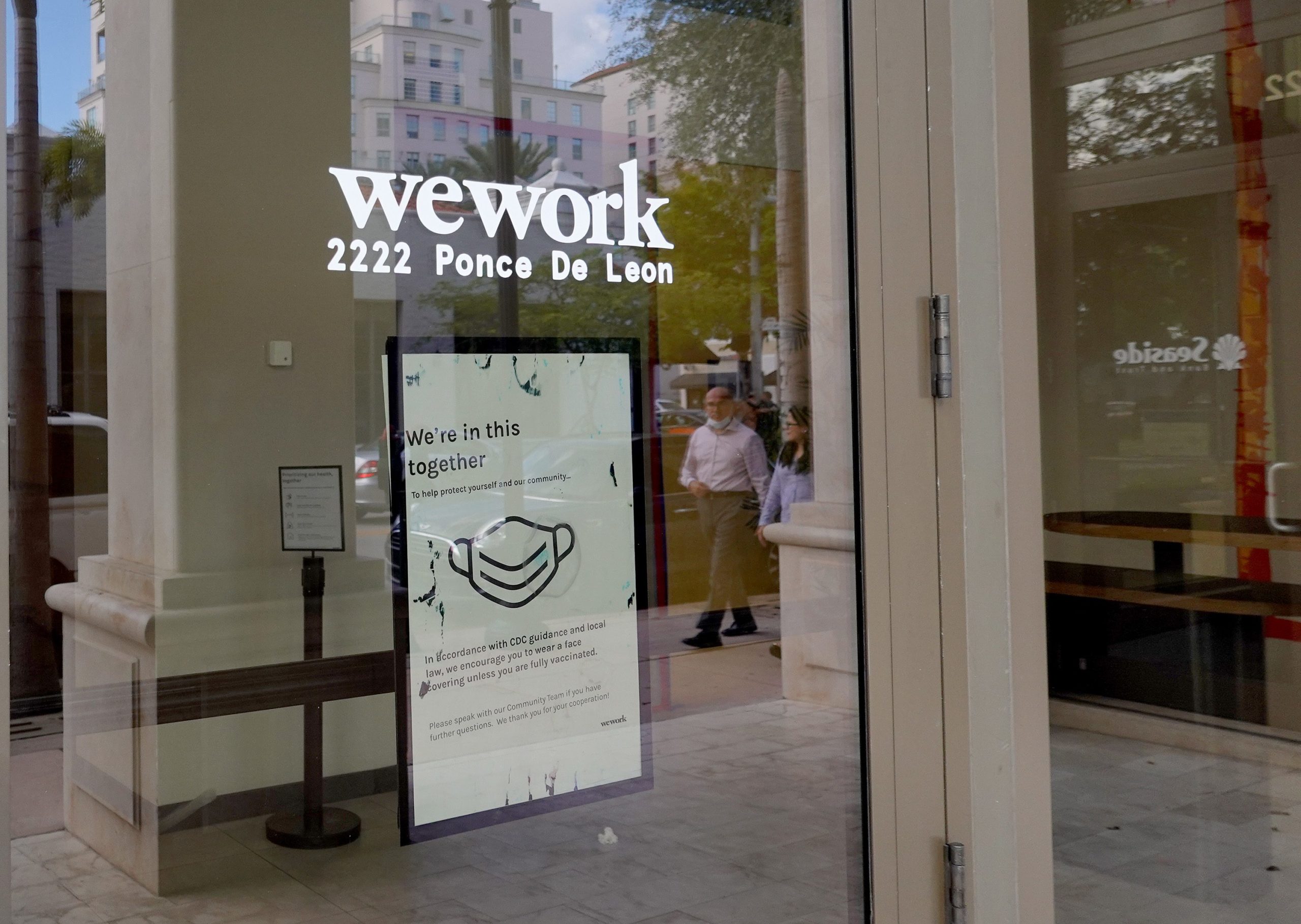Additional than two many years soon after its epic IPO failure, office-sharing large WeWork ultimately went general public Thursday on the New York Stock Exchange below the ticker “WE†through—of course—a SPAC merger. But does everyone nevertheless want to possess a piece of the troubled enterprise?
Shares jumped more than 13 percent on the initially working day of trading, suggesting that there is solid desire in the marketplace. Yet, there’s no denying that WeWork is a totally distinct corporation from two years back.
The SPAC deal, introduced in March together with with Menlo Park, Calif.-dependent BowX Acquisition Corp., valued WeWork at $9 billion. That’s a steep price cut from 2019 when the corporation was appraised at $47 billion by its most significant shareholder, SoftBank, and prepared to go community by way of a traditional first public providing.
That prepare fell by in August 2019 just after WeWork’s IPO filing revealed that it experienced recorded almost $2 billion in losses in 2018 and was about to run out of funds. Media reports about then-CEO Adam Neumann’s erratic administration fashion and quite possibly illegal business carry out quickly surfaced, which subsequently led to an investigation by the New York State Attorney Typical.
Neumann stepped down from all govt roles and gave up his voting rights in the wake of the controversy. WeWork’s non-public industry valuation progressively dropped. In Oct that 12 months, SoftBank purchased out 80 per cent of the organization for $10 billion. (SoftBank had already invested $10 billion in WeWork.) By March 2020, the company was really worth a lot less than $3 billion.
“Two many years ago, the price of WeWork was zero and the reality we have taken it from zero to $8 billion to $9 billion is fantastic,†WeWork’s chairman Marcelo Claure, who replaced Neumann in Oct 2019, stated on CNBC’s “Squawk Boxâ€Â Thursday.
Neumann’s CEO part was assumed by Sandeep Mathrani, a veteran CEO of Brookfield Homes Retail, in February 2020, just weeks just before the coronavirus strike the U.S. and places of work nationwide were pressured to close.
The new management carried out some drastic cost-cutting steps, like slashing two-thirds of headcount and exiting or renegotiating hundreds of leases at underperforming locations.
“I joined this corporation with an upside down value composition,†Mathrani stated all through the company’s investor working day before this thirty day period. “Over the previous 20 months, we have centered on streamlining our running fees and proper-sizing our serious estate portfolio…We are the appropriate firm, at the appropriate time.â€
Even now, an IPO was out of the problem when it returned to the game. “The damaging press and activities connected with WeWork’s final attempt would have made it actually hard to raise billions of bucks in the general public industry, just as a straight and regular IPO,†explained Josef Schuster, founder of IPOX, a Chicago-centered expenditure advisory company focusing on recently listed organizations. “Coming to the current market with a SPAC is definitely as great as it can get for WeWork, to form of keep this aspirational lifetime to come to be a big publicly traded firm down the road.â€
In the 1st 50 % of 2021, WeWork recorded a internet loss of almost $3 billion. But as the pandemic accelerates need for hybrid and versatile workspaces, actual estate buyers anticipate a vivid potential for WeWork.
“I see significant advancement in their future,†claimed Ronald Max, a strategic authentic estate financial investment advisor at Chicago-based mostly Actual Estate Bees. “It is not always productive to function at dwelling (kids, sounds, interruptions) or to get the job done by itself. I believe the hybrid operate ecosystem will assist WeWork boost its small business as it will turn out to be a lot more frequent for companies to allow for personnel to operate remotely.â€
“Sure, this is a tale where by a ton of people today wrote documentaries that it was the end of WeWork,†Claure claimed on CNBC on Thursday. “Well, the resistance, the persistence of these people is remarkable. This corporation is in this article, is more robust than at any time, and no doubt that we’re heading to be celebrating lots of a lot more milestones.â€
WeWork presently operates about 750 spots globally, encompassing 150 towns in 38 countries.

